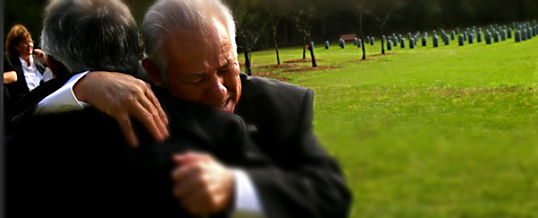
When someone near to us is suffering due to a loss, it can be difficult to know how to help them. Supporting them through the experience is an important part of friendship so here are some tips on understanding grief and what you can do to help.
- Understand that there is a range of emotions that are all normal. Most people have heard about the “5 stages of grief: disbelief/denial, yearning, anger, depression and acceptance.” Don’t get stuck on the idea of a process. Research has shown that most people do not experience these stages in a linear manner, in fact not everyone will experience all five of the stages (Meek, 2007). Sometimes people will experience different feelings at the same time, or flip flop back and forth between the different stages. Support them through whatever they are experiencing in that moment and recognize that any or all of these emotions are normal at any given time.
- Don’t focus on time. The grieving process is different for every individual. For some it can take longer than expected. Don’t rush someone in their healing or make them feel as though there is something wrong with how long they have been grieving. Give them all the time they need to grieve without judgement.
- Check in and ask them how you can help. Don’t assume or guess that you know what they need. Ask them and if at that time they reply with “nothing” or “I don’t know” tell them that you are there for them. Ask again later. It can be hard to ask for help, even when the offer is put out there. So if your friend does not take you up on your offer right away, wait a while and then remind them that your help is still available. You might want to offer suggestions such as cooking a meal, running errands or helping clean.
- Listen. It can be challenging to figure out what to say to a grieving friend, so stick to listening. Resist saying that you understand, even if you have dealt with loss yourself. Every experience is different. Don’t talk about how strong they are or how well they are coping. Though you are trying to be encouraging, they are likely feeling vulnerable and that is ok. Avoid cliché statements masking as advice; it’s better to simply say “I’m sorry” or “I don’t know what to say” than to suggest that “time heals all wounds.”
- Recommend help. Though the grieving process is normal and does not indicate that there is something wrong with the individual, support from a Montreal Psychologist or Therapist can help a person to understand and cope with their emotions through grief counselling.
Most of all, remember the best thing you can do for a grieving friend is to have no expectations. Be there to support them through however they are experiencing the process. Be open to their individual process and pay attention to the needs that they express.
References:
Experts, Y. (2012). 8 Tips To Help Console a Grieving Friend. Psych Central. Retrieved on September 26, 2012, from http://psychcentral.com/blog/archives/2011/11/20/8-tips-to-help-console-a-grieving-friend/
Meek, W. (2007). Five Stages of Grief. Psych Central. Retrieved on September 26, 2012, from http://psychcentral.com/blog/archives/2007/02/24/five-stages-of-grief/



About the Author:
Dr Chow is a licensed clinical psychologist with a private clinic in Saint-Laurent (Montreal) and in Saint-Lambert on the South Shore. She received her doctorate in Clinical Psychology from Concordia University. She is also a member of the Order of Psychologists of Quebec.